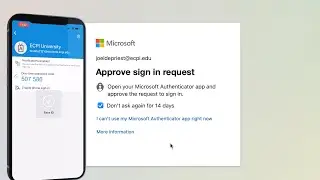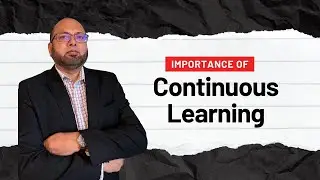Managing Stress and Anxiety at Work | Boost Your Confidence
Managing stress and anxiety at work is crucial for maintaining both mental health and productivity. Here are several strategies you can apply:
1. Prioritize and Organize Tasks
Use a task list or planner: Break down tasks into smaller, manageable chunks. Prioritize based on deadlines and importance.
Time management: Use techniques like the Pomodoro method (working in focused intervals) to improve productivity and reduce feelings of being overwhelmed.
2. Set Realistic Goals
Avoid overcommitting: Be mindful of your workload and set achievable goals. This helps prevent burnout and reduces anxiety about not meeting expectations.
Communicate with your manager: If you're feeling overloaded, it’s important to discuss your workload and seek support or adjustments.
3. Establish Boundaries
Work-life balance: Set boundaries around work hours to ensure you have personal time to unwind.
Learn to say no: Understand that it's okay to decline additional tasks if they threaten to overload you.
4. Develop Healthy Coping Mechanisms
Deep breathing and mindfulness: Practice deep breathing exercises or mindfulness techniques during stressful moments. Apps like Headspace or Calm can help guide you.
Regular breaks: Step away from your workspace periodically to clear your mind and relax.
Physical activity: Engage in regular exercise, which reduces stress and improves mental well-being.
5. Leverage Social Support
Talk to colleagues or friends: Sharing your concerns with trusted coworkers or friends can provide relief and new perspectives.
Seek professional help if needed: If anxiety becomes unmanageable, consider speaking to a therapist or counselor who specializes in workplace stress.
6. Create a Positive Work Environment
Personalize your workspace: Make your work area comfortable and inspiring to foster a positive atmosphere.
Practice gratitude: Focus on the positives of your job and celebrate small achievements to counterbalance negative thoughts.
7. Focus on What You Can Control
Let go of perfectionism: Recognize that perfection is unattainable and focus on doing your best within reasonable limits.
Be proactive: Instead of worrying about things that could go wrong, focus on solutions and actions that move you forward.
By implementing these strategies, you can better manage stress and anxiety, creating a healthier and more balanced work experience.
Welcome to the final video in our series Overcoming Nervousness and Gaining Confidence in a New Job! 🌟
Video 1: Preparation and Research
• How to increase your Confidence New J...
Video 2: First Impressions
• Making Positive First Impressions at ...
Video 3: Building Relationships
• Building Strong Relationships at a Ne...
Video 4: Setting Realistic Goals
• Setting Realistic Goals for a New Job...
Video 5: Seeking Feedback
• Seeking Feedback at a New Job | Impro...
Video 6: Continuous Learning
• Continuous Learning at Work | Persona...
Video 7: Managing Stress & Anxiety
• Managing Stress and Anxiety at Work |...
👇🏽
In this episode, we focus on Managing Stress and Anxiety in the workplace to help you stay calm, focused, and confident.
What You'll Learn:
Techniques for stress management and relaxation
Maintaining a healthy work-life balance
Seeking support from mentors and counseling services
Key Takeaways:
Reduce workplace stress and anxiety
Enhance your overall well-being and productivity
Boost your confidence by managing stress effectively
📢 Don't forget to like, comment, and subscribe for more career tips and advice!
00:00 Introduction
00:48 Get feedback
01:48 Explain what you are doing
03:57 Remember: work-life balance
04:45 Your health is important
#ManagingStress
#WorkplaceAnxiety
#CareerGrowth
#StressRelief
#ProfessionalDevelopment
#WorkplaceSuccess
#NewJob
#CareerAdvice
#MentalHealth
#AgileLeaders





![Australian shepherd Woody - Sheepdog Training [ outrun, drive, split ]](https://images.mixrolikus.cc/video/VNRA_xCGu4I)

























